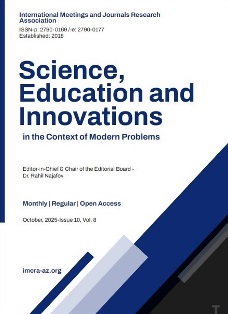-
Conflict of Interest
Conflict of Interest Policy
In academic publishing, a conflict of interest (COI) arises when an individual involved in the editorial, authorship, or peer review process has external interests—financial, personal, professional, political, or ideological—that may compromise, or appear to compromise, the objectivity, integrity, or impartiality of their decisions or work.
1. Disclosure Responsibilities
All participants in the publication process—including authors, peer reviewers, editors, and editorial board members—are required to disclose any actual or potential conflicts of interest. These disclosures must be made at the time of submission or review and reported directly to the Editor-in-Chief or editorial office.
Failure to disclose competing interests may result in rejection or retraction of a submission.
2. Types of Conflicts of Interest
Conflicts of interest may include, but are not limited to, the following:
-
Financial Interests: Employment, stock ownership, consultancy, grants, funding, honoraria, patents, or any form of financial support from organizations with a vested interest in the research.
-
Personal Relationships: Family members, romantic partners, or close friends involved in the submission or evaluation process.
-
Professional Associations: Institutional affiliations, memberships in academic networks, collaborations, or competition with the author(s).
-
Political or Ideological Bias: Strong beliefs or advocacy positions that may influence research interpretation, reporting, or editorial decisions.
3. Conflict of Interest in Authorship
Authors must clearly disclose any relationships that may pose a conflict of interest, including financial ties, institutional affiliations, or intellectual property interests. When relevant, such disclosures must be stated in the article itself, typically in a dedicated “Conflict of Interest” or “Competing Interests” section.
If no conflicts exist, authors should explicitly declare:
“The authors declare no conflicts of interest related to this publication.”
4. Conflict of Interest in Peer Review
Reviewers must decline to review any manuscript if they:
-
Have a financial or personal interest in the outcome of the work,
-
Have a recent or ongoing collaboration with the authors,
-
Work in the same department or institution as the authors,
-
Have ideological or political beliefs that may impair their neutrality.
To ensure unbiased peer review, SEI may assign multiple reviewers, use blinded peer review, and rotate reviewers when necessary.
5. Conflict of Interest in Editorial Decisions
Editors and journal staff must recuse themselves from handling manuscripts in which they have a conflict of interest, including:
-
Personal or professional relationships with the authors,
-
Involvement in the research or funding source,
-
Institutional or political affiliations that may affect impartiality.
To maintain editorial independence and transparency, editorial decisions are subject to oversight and may involve multiple editors or an editorial advisory committee when necessary.
6. Conflict Management Procedures
SEI applies rigorous safeguards to identify and manage conflicts of interest, including:
-
Requiring formal declarations during manuscript submission and peer review,
-
Maintaining a transparent record of disclosed interests,
-
Rotating editors and reviewers to avoid undue influence,
-
Auditing high-risk submissions for bias or ethical concerns.
All reported conflicts are reviewed by the editorial team, and appropriate actions are taken to ensure that decisions are fair, balanced, and free from undue influence.
7. Importance of Managing COI
Properly managing conflicts of interest is essential to preserving the credibility, trustworthiness, and scientific integrity of the journal. It ensures that published research is objective, transparent, and ethically sound, aligning with the best practices of international scholarly publishing standards.
-
















